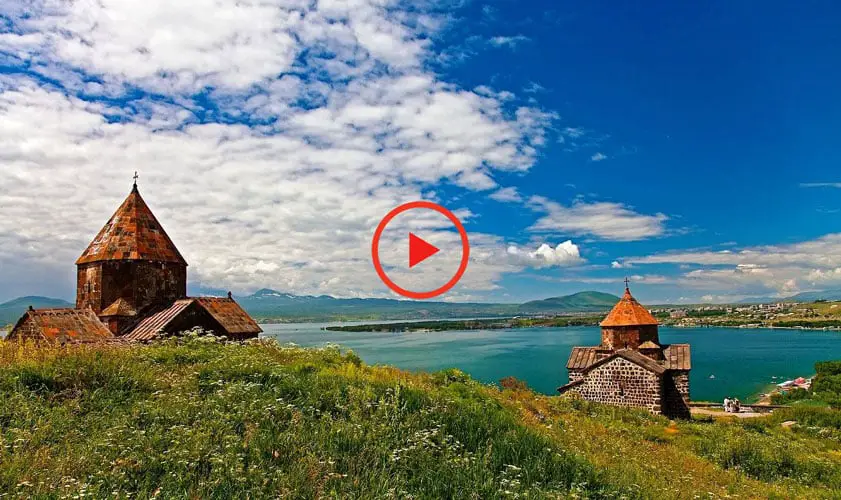Bedros Tourian was the son of an Armenian blacksmith of Scutari, whose family name was Zembaian. He was born on May 20, 1851, he translated his family name to Armenian to make it Tourian. He lived in great poverty and died of consumption, particularly from pulmonary tuberculosis (TB), in 1872.
He left a number of dramas and poems that enjoy great popularity among his countrymen. His poems reflect his inner suffering especially “Little Lake” which shows how desperate he was, weak and ill which inspired him to write this sad poem. He is an example of a kind-hearted Armenian Man.
Alice Stone Blackwell was an American feminist, suffragist, journalist, radical socialist, and human rights, advocate. (September 14, 1857 – March 15, 1950). She was also the niece of Elizabeth Blackwell, America’s first female physician. In 1893, Alice took over her mothers’ role as editor-in-chief of the Woman’s Journal.
Around this time, Isabel Chapin Barrows introduced Alice to an Armenian named Ohannes Chatschumian (also transliterated as Hovhannes Khachumian) and to the rapidly deteriorating situation of Armenians in the Ottoman Empire.
Alice and Ohannes collaborated on the translation of Armenian poetry and founded the Friends of Armenia to raise awareness and support the settlement of traumatized refugees.
Throughout her later life, Alice used poetry and the skills she gained as a suffrage organizer and journalist to further a wide range of humanitarian and progressive causes.
Petros Duryan, Petros Tourian or Bedros Tourian.
Bedros Tourian, BIO, Work, Poetry, Plays, Brother
Bedros Tourian studied at the local Jemaran and graduated in 1867. His parents arranged a secretarial job for him with a businessman. He lasted only 9 months. Then he started teaching at Father Gabriel Khanjian’s new school.
- He wrote his first poem when he was 13
- He starts a Reading Society with Boghos Teljian in his neighborhood
- He wrote his first play at 15 called “Vart Yev Shoushan” which was produced with Dikran Choukhajian’s music.
- His other plays also are produced eventually, and he watches them in person.
In 1869 Bedros Tourian became gained popularity as a poet and writer.
- He dedicated a poem to Khrimian Hairig «Ձօն առ Հայրիկն Խրիմեան ազգասէր նորընտիր Պատ. Կ. Պոլսոյ», “Ode to Khrimian Hairig the newly elected Patriarch of Constantinople”, which was published in the newspaper of «Օրագիր ծիլն Աւարայրւոյ», “Daily Sprout of Avarayr”.
- That work was his first to be published. A few days later the same newspaper published “Father of Armenians” «Հայրիկն Հայոց».
- He was an editor at Orakir «Օրագիր», a daily Newspaper.
- The teenage poet published several articles in that newspaper under his real and false names, contributing to public life with his writing.
Tourian stated acting for a short time, “to live, to get rid of unemployment”, as he wrote to his close friend, Tigran Adamian.
His body reveals symptoms of tuberculosis or pneumonia early in 1871, he was able to live normally until October, but he passed away in the early hours of 21 January 1872. People ask for a big National Funeral, and 4000 young people take part in it.
The Church Orchestra asked for the permission of Patriarch Khrimian to play during the funeral, which was forbidden, but the patriarch says: “I will not allow it but I will forgive.” The neighborhood reading society published Tourian’s works, and raised money, to erect his tombstone in 1874.
At the request of Avetis Goranian, one of the leaders of the reading society, Betros’ 14-year-old brother Mihran (later Archbishop Yeghishe Tourian) became the author of the epitaph, and it was edited by the poet Khachatur Misakian.
Translation of the famous poem “Little lake” «Լճակ»
Translated by Alice Stone Blackwell
Why dost thou lie in hushed surprise,
Thou little lonely mere?
Did some fair woman wistfully
Gaze in thy mirror clear?
Or are thy waters calm and still
Admiring the blue sky,
Where shining cloudlets, like thy foam,
Are drifting softly by?
Sad little lake, let us be friends!
I too am desolate;
I too would fain, beneath the sky,
In silence meditate.
As many thoughts are in my mind
As wavelets o’er thee roam;
As many wounds are in my heart
As thou hast flakes of foam.
But if heaven’s constellations all
Should drop into thy breast,
Thou still wouldst not be like my soul, —
A flame-sea without rest.
There, when the air and thou are calm,
The clouds let fall no showers;
The stars that rise there do not set,
And fadeless are the flowers.
Thou art my queen, O little lake!
For e’en when ripples thrill
Thy surface, in thy quivering depths
Thou hold’st me, trembling, still.
Full many have rejected me:
“ What has he but his lyre? ”
“ He trembles and his face is pale;
His life must soon expire! ”
None said, “ Poor child, why pines he thus?
If he beloved should be,
Haply he might not die, but live, —
Live, and grow fair to see.”
None sought the boy’s sad heart to read,
Nor in its depths to look.
They would have found it was a fire,
And not a printed book!
Nay ashes now! a memory!
Grow stormy, little mere,
For a despairing man has gazed
Into thy waters clear!

